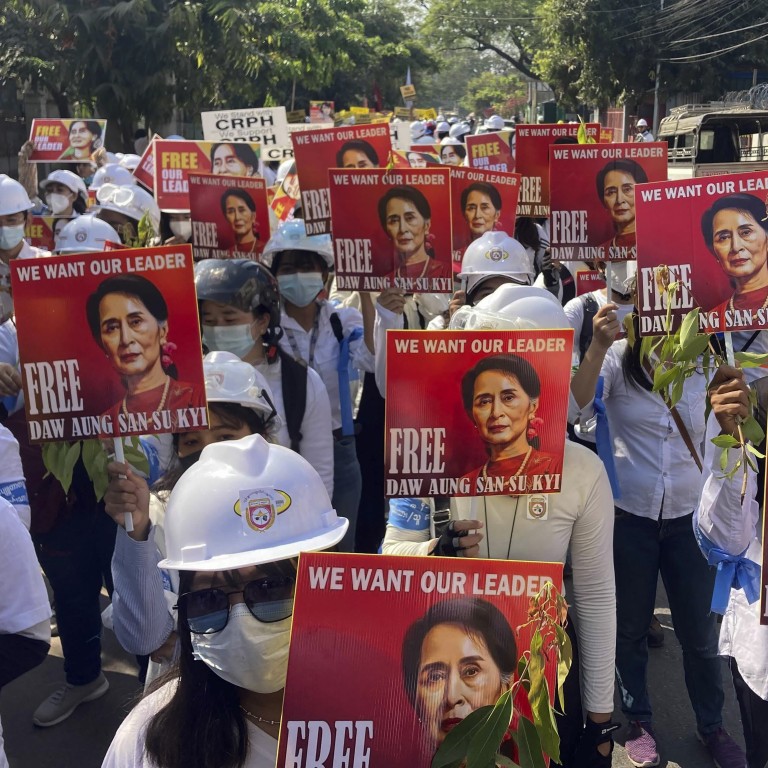
Myanmar junta blames ‘foreign intervention’ for Asean summit exclusion
- Spokesman says US and EU have been putting pressure on Asian bloc member states
- But analysts say excluding Min Aung Hlaing to invite a ‘non-political representative’ instead is ‘breakthrough’
“At the juncture of emerging strategic competition in the region, ignoring Asean’s good traditions of fostering unity in diversity and resolving differences through consultations and consensus would greatly affect the unity and centrality of Asean,” the junta-controlled Ministry of Foreign Affairs said in a statement on Facebook.
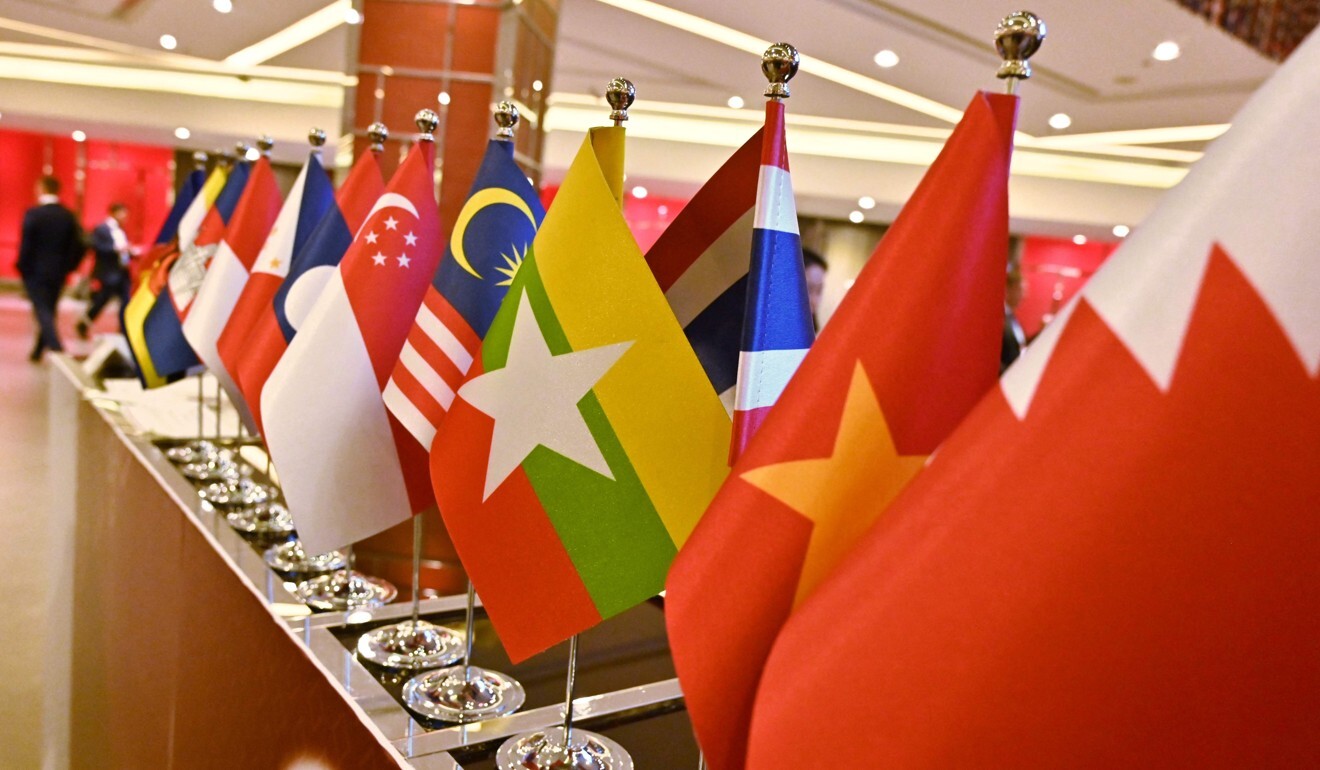
Earlier, junta spokesman Zaw Min Tun told the BBC Burmese news service that the United States and representatives of the European Union had pressured other leaders of the 10-member Association of Southeast Asian Nations (Asean) to exclude military leader Min Aung Hlaing from the summit, taking place October 26-28.
“The foreign interventions can also be seen here,” he said. “Before, we learned that some envoys from some countries met with US foreign affairs and received pressure from EU.”
‘Non-political representative’
Asean’s Friday decision was made by nine out of ten foreign ministers.
In a statement earlier on Saturday, the current Asean chair, Brunei, said the emergency meeting of Asean foreign ministers the previous day had concluded that a “non-political representative” from Myanmar will be invited to the bloc’s October 26-28 summit.
The statement did not name Min Aung Hlaing or the non-political representative who would be invited in his stead, and noted “reservations” over the decision from the junta representative.
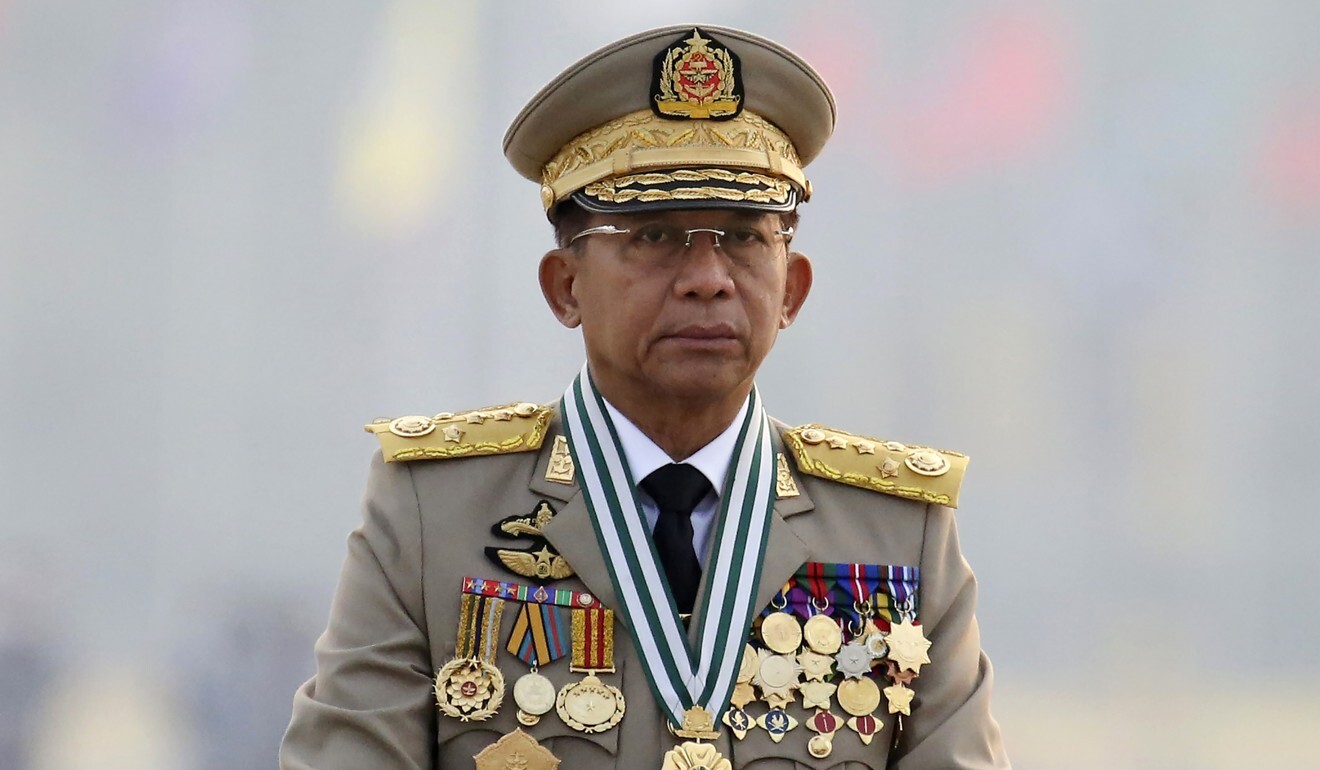
It said some Asean states had received representations from the country’s anti-junta shadow administration, the National Unity Government (NUG), to attend the summit.
The planned three-day virtual talks include intra-Asean talks as well as meeting between the bloc’s national leaders and heads of governments of major powers, as part of the East Asia Summit.
Friday’s decision to invite a non-political Myanmar representative was taken due to “competing claims” to attend the summit and “to allow Myanmar the space to restore its internal affairs and return to normalcy”, the statement said.
Aaron Connelly, a Southeast Asia analyst with the International Institute for Strategic Studies think tank, wrote on Twitter that the move was a “real breakthrough for Asean, and for anti-junta forces”.
Junta trial of Myanmar’s ousted leader Aung San Suu Kyi hears first testimony
He said: “It restores credibility to Asean diplomacy, and deprives [the junta] of an opportunity to portray itself as a legitimate government – portrayals which it had been using to discourage further resistance inside Myanmar”.
Other analysts also lauded the unprecedented nature of the decision as a possible turning point in efforts to pressure Min Aung Hlaing to de-escalate the post-coup situation in the country.
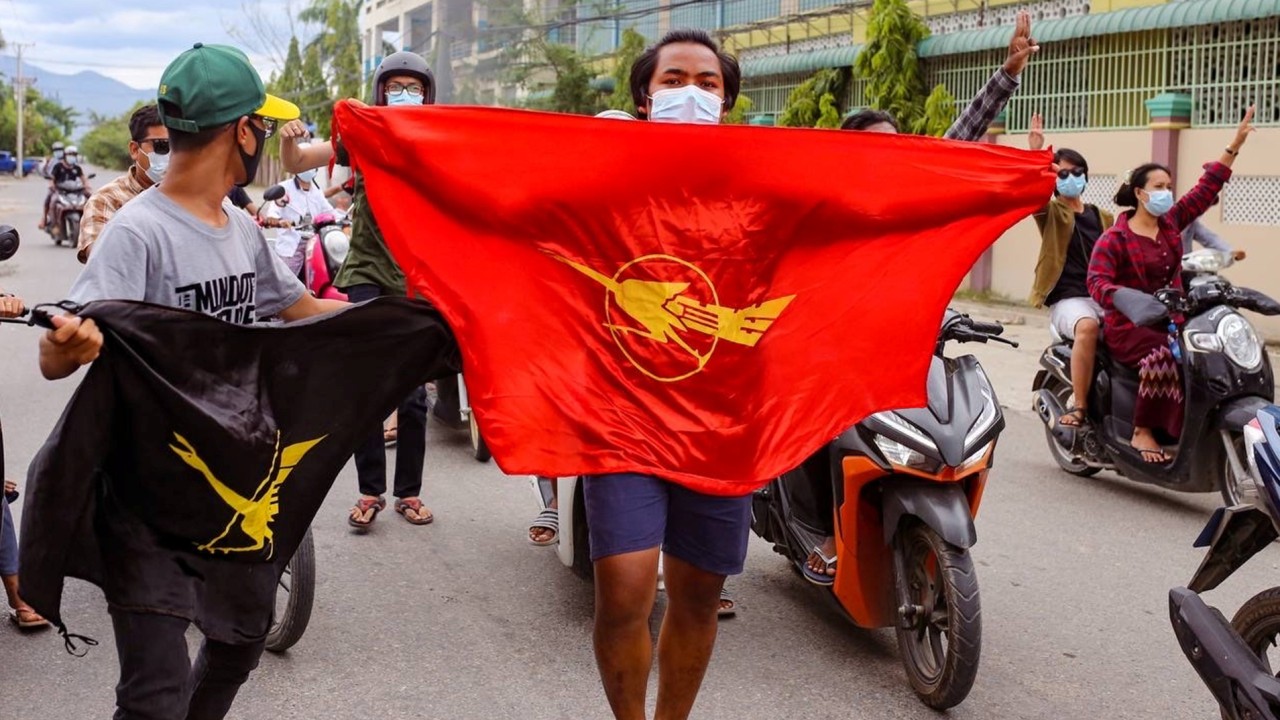
02:17
Myanmar military coup hampers fight against country’s biggest wave of Covid-19
More than 1,100 deaths
A bloody crackdown on anti-junta forces following the February 1 coup has resulted in more than 1,100 deaths and the detention of more than 7,000 people including Aung San Suu Kyi, the head of the now-deposed National League for Democracy (NLD).
Violence has spiked in recent weeks after the NUG declared an armed “defensive war” against Min Aung Hlaing forces, citing the failure in the international community’s efforts to bring the junta chief to heel. Asean, founded in 1967, has long been criticised for a policy of non-interference in member states’ domestic affairs.
That policy, along with a convention that Asean decisions must be made by unanimous consensus rather than by a majority vote, has meant that countries are rarely publicly rebuked by the bloc for internal transgressions.
Hunter Marston, an Asean watcher and WSD-Handa fellow with the Pacific Forum think tank, said Friday’s move was “to the best of my knowledge… totally unprecedented”.
Marston noted that a similar collective rebuke took place in 2005, when Myanmar – also under junta rule at the time – agreed to forego its chairmanship of Asean the following year following pressure from the international community over a lack of progress in its democratisation process.
That move, however, was “mutually agreed, or at least framed as such,” the Australia-based researcher said.
Allowing non-political representation will allow those below the level of foreign minister to participate in “technical meetings” – such as those involving climate resilience and cybersecurity – and was indicative of Asean stopping short of “full-scale suspension” of Myanmar, Marston said.
‘Still ways to participate’
“Myanmar will still have ways to participate in future Asean meetings, just not the main events like the Foreign Ministers’ Meeting or the East Asia Summit,” he added.
Friday’s decision was foreshadowed by comments from Malaysia and the Philippines, whose foreign ministers this week signalled their governments were against Min Aung Hlaing attending the summit due to the junta’s non-adherence to the so-called five point consensus agreed in April.
The accord was struck as part of efforts to de-escalate violence in Myanmar following the February coup, and includes a provision for an Asean special envoy to be allowed to visit the country to “meet with all parties concerned” in the internal turmoil.
This week, however, Myanmar said it would not allow the envoy, Brunei’s senior diplomat Erywan Yusof, to meet Suu Kyi because she is charged with crimes.
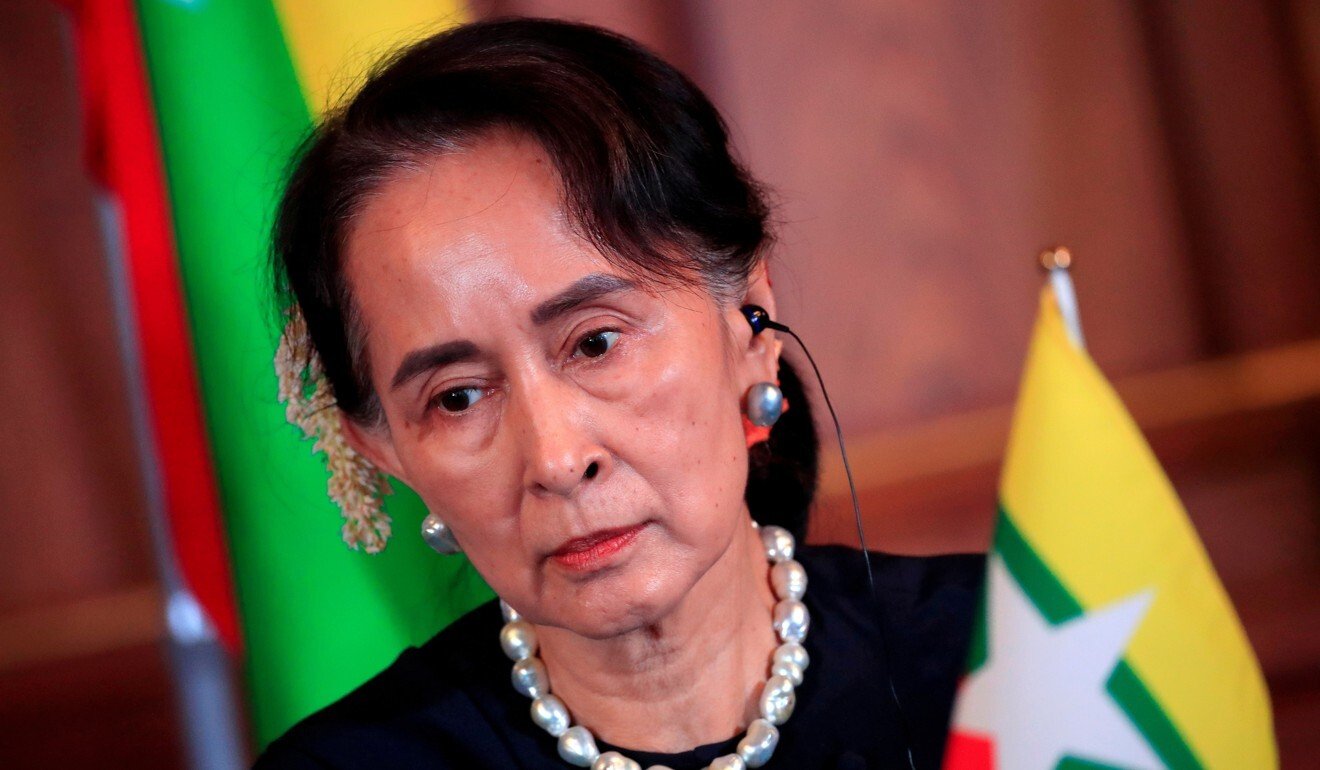
Suu Kyi and other NLD members including the deposed president Win Myint have been charged with offences that international rights groups say are trumped up.
Following the junta’s refusal to allow Erywan access to Suu Kyi, the Bruneian official decided to cancel a planned visit to the country.
Thomas Daniel, an analyst with Malaysia’s Institute of Strategic and International Studies, suggested the junta’s deliberate non-adherence to the five point consensus could have contributed to the decision to sideline Min Aung Hlaing.
‘Credibility on the line’?
“Perhaps all Asean member states have finally realised, after 10 months, that the reputation and credibility of the regional organisation is on the line, and the scope of its engagements with selected dialogue partners and international organisations could be affected in the short to medium term,” Daniel said.
The regional observers underscored that attention will next turn to the identity of the person Asean plans to invite to the summit.
“The ‘non-political’ representation will open a range of other questions: who is considered ‘non-political’ now, and can Asean, the Tatmadaw [Myanmar military] and the NUG agree on the same understanding of ‘non-political’? Do they all have a say?” said Huong Le Thu, a senior analyst at the Australian Strategic Policy Institute.
Le Thu noted that Asean took months before reaching a compromise to appoint Erywan, the Bruneian second minister for foreign affairs, as its Myanmar special envoy. “There‘s only ten days left until the summit this time,” she said.
Marston said it was important that the non-inclusion of Min Aung Hlaing extended to the junta’s foreign minister, Wunna Maung Lwin and other cabinet officials in the so-called State Administration Council.
It is likely that the latest move will mean that Asean will “lose access and as a result may have less influence over the Myanmar military,” he said. “They‘ll now need to work with dialogue partners like Australia, Japan, India, and others to find alternate ways to communicate with the Tatmadaw to ensure special envoy Erywan is able to visit and keep up the pressure via Asean five-point consensus.”
Some observers said Asean’s latest move, while well-intentioned, was not rooted in reality.
“There is no such thing as a ‘non-political representative’ in the current context. Senior civil servants are mere instruments of the junta, nothing else,” Chris Sidoti of the Special Advisory Council for Myanmar, a panel of international experts, said.
Sidoti said Asean’s “only proper course” was to invite the NUG to the upcoming summit. “Anything less than this makes Asean look ridiculous.”

